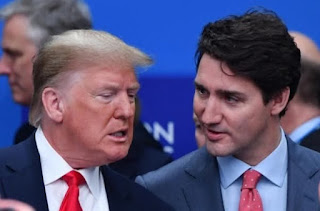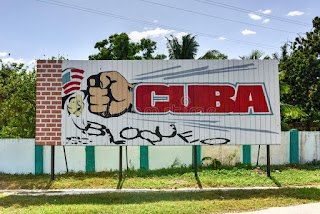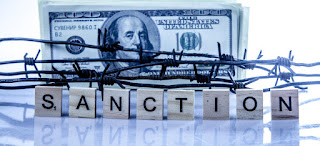By Sophia Weeks, COHA Research Associate:
President Obama has not taken any decisive steps to veer away from Washington’s benighted, near half-century trade embargo against Cuba. By refusing to take advantage of the opportunity to reject a longstanding and morally-bankrupt policy, which has achieved very few successes and which has been based on hypocrisy, double standards, and inconsistencies, President Obama has turned his back on the possibility of a new beginning for US policy towards Latin America based on constructive engagement.
At this point, Obama is sadly not the US president bringing “change” to the hemisphere as millions of North and South Americans had hoped. Rather, he has failed to fulfill his own foreign policy objective of reaching out to Washington’s unforgiving foes like the Castro brothers.
The courage and political wisdom necessary to call for the termination of the embargo and new beginnings has proven devoid of stamina, replaced by a timorous approach composed of weak probes and minimal actions. It appears that the President does not wear the face of change for those who had reason to hope it would come about.
Remittances and Travel to Cuba So far Obama has removed restrictions on remittances and travel of Cuban Americans to Cuba, but not for all Americans. In doing so he unfortunately has created two distinct classes of citizens each with different rights, a situation any democratic country would be wise to repudiate. It is disappointing that while Obama has the discretionary right to allow anyone to travel to Cuba, he has chosen not to utilize it. The new administration’s policies on Cuba thus far have merely mirrored the Clinton administration’s centrist approach. In effect, in regards to Cuba, we are witnessing something akin to President Bush’s or Clinton’s third term in office.
Obama has only revoked some of the more parochial aspects of Bush’s policy and has slightly softened Clinton’s draconic hard line on Cuba. Although Obama stated during his presidential campaign, “My policy toward Cuba will be guided by one word: ‘libertad,’” what new freedoms has he brought? The Cuban and American people are still kept a world apart, without any constructive steps that suggest a meaningful change lies ahead. In other words, Washington’s uninspired and lackluster policies toward Havana may please an anti-Castro militant, but not someone seasoned in the ways of statesmanship.
Cuban Embargo Today, regarding Cuba, and more generally Latin America, we see unnerving similarities between the Obama, Bush, and Clinton administrations. Instead of following through on Obama’s promises that “After eight years of the failed policies of the past, we need new leadership for the future,” the same deceptive excuses and cosmetic domestic changes have characterized his policy on Cuba. While Obama already has many controversial issues on his plate and it is clear that his actions reflect a desire to protect and preserve his presidency, this cannot be used to excuse what up to this point is an inept policy. His subsequent decision to continue the embargo confirms his failure to launch a new chapter of engagement that will be sustained and elaborated. COHA Director Larry Birns has referred to Secretary of State Clinton’s recent decisions regarding Cuba as illustrating an inevitable move towards a centrist approach to Caribbean issues, much like those assumed in the Clinton years. In Obama’s campaign, according to Birns, “his progressive and left-leaning rhetoric belied his inability to protect and implement meaningful change. Even if he wanted to be the progenitor of a new generation of a bold new policy aimed at Cuba, he probably lacks the votes to implement what he has promised, without a bruising battle.”
Of course Obama has every right to define and protect his Presidential legacy as he sees fit, but not at the cost of forfeiting the extraordinary opportunity he has to dictate a new direction in hemispheric policy. Americans, as well as Cuban Americans, were promised a review of Latin American foreign policy, and that is what they expected. Since coming to office, it was not only Americans that were let down: average Cubans also are disappointed with the lack of productive policy decisions. Just a few days ago, Cuban Foreign Minister Bruno Rodríguez echoed this sentiment: “Obama was elected on a platform of ‘change’ but with respect to the economic blockade against Cuba, there has been no change.”
Cuba: the Terrorist
Obama’s vocabulary of change is symbolically undermined by his lack of action regarding the embargo. It was announced on September 14 that he would extend the economic sanctions against Cuba under the Trading with the Enemy Act for another year. Established in 1917, the measure was utilized by the Kennedy administration to implement the trade embargo on Cuba in 1962. In 1996 the Helms-Burton Act was passed, codifying the various disparate laws affecting the embargo into a single bill. President Clinton saw to it that under Helms-Burton, the embargo could be lifted, but only with the approval of the U.S. Congress, and only once Cuba has begun an authentic transition to democratic political institutions. Thus, even if Obama decided against renewing the extension of Trading with the Enemy Act, the embargo would still hold unless revoked by Congress. However, such an act would have represented a symbolic outreach to Havana and the Cuban people.
There are Terrorists and “Terrorists”
One underlying problem that continues to hinder an effective dialogue with the Cuban government is that Havana remains on the State Department’s annual list of State Sponsors of Terrorism. Cuba has been on the blacklist since March 1982, when it was added due to its close relationship with the Soviet Union during the Cold War. Castro has long since backed away from his government’s policy of supporting what Washington would classify as terrorist organizations. The fact that Cuba remains on the list speaks to the hypocrisy of such a designation, since so many far more brutal nations are allowed to freely relate with the White House.
The reprehensible actions of the Cuban government over the past few decades pale in comparison to the Washington’s dedication over the past 50 years to violent and often clandestine terrorist operations inside Cuba. North Korea and Libya are examples of countries that continue to align themselves with such threats, but recently, purely on the grounds of expedience on Washington’s behalf, have had their names removed from the list. Yet Cuba remains, alongside countries like Iran and Syria, when Washington has not been able to make anything like a respectable case to justify this.
It is apparent that the removal of the name of North Korea was politically motivated, as there is plenty of evidence pointing to recent terrorist activities occurring in the country. What is absurd is that Cuba is still labeled an “enemy” of the US, despite Obama’s inspirational words of evidence of change taking place in the country. The removal of Cuba from the list of State Sponsors of Terror, as well as ending the 47-year embargo, would have been consistent with Obama’s vow of goodwill to governments throughout Latin America, and usher in a new era of US-Cuba relations. Then there is the fact that Washington doesn’t have a scintilla of evidence to back up its terrorism charge.
Cuba: By Mail On September 17, US and Cuban officials began discussing the possibility of restoring direct mail service between Cuba and the United States. For the Obama administration, this is another small but welcome initiative in the right direction. Direct mail between the US and Cuba has been suspended since 1963. Currently, even a simple first-class letter requires routing through a third country, a convoluted process that can take months to complete. Although resuming direct mail is an important step in establishing a positive relationship, it should be understood that restoring service is a mere minor gesture of goodwill, if the far greater effects of the embargo insupportably remain in place. Cuban officials have expressed their belief that the embargo has contributed to the widespread deterioration of postal buildings and a weakening of the infrastructure of the entire postal system, but this should not deter Washington from proceeding with these negotiations. The disparities should be emphasized however, between the steps Obama has indicated he is willing to take within the larger picture of US-Cuban relations, which remain under a buffer of unhelpful special conditions which are a hindrance to any opening up of the political process.
A further outcome of the two-country dialogue on direct mail service is Cuba’s reasonable insistence that the restoration of commercial flights accompany the new mailing system. Although this last request remains a point of contention, Josefina Vidal Ferreiro, director of the Foreign Ministry’s North American Department, said that overall, “We are satisfied with developments in this first meeting,” and called the talks “wide-ranging and useful.” In this respect, President Obama has started in a purposive direction; he now must show that he does indeed have “good intentions” towards Cuba by making these dialogues a reality.
A Look Ahead
On September 28, the General Assembly of the United Nations Organization will once again condemn Washington’s embargo on Cuba. This will be the 18th consecutive year that Cuban officials produce a report requesting relief from the economic restrictions forced upon them by the US. There is little question that once again the UN will vote to denounce it. The 2009 report, attributing $236 billion (using today’s dollar value) in damages over the past five decades to the embargo, outlines damages to Cuba’s education, health, agriculture and transportation, among other sectors.
While Obama certainly has too much on his plate internationally and domestically for any immediate dramatic moves toward Cuba, his decision to extend the Trading With the Enemy Act against Cuba for another year was a profound disappointment. Cuban officials accept the fact that, due to the Helms-Burton Act, Obama cannot repeal the embargo alone, but the baby steps of allowing family travel and the exchange of remittances is not enough of an equivalence when the costly and lethal effect of the embargo and years of covert operations against the Castro regime are taken into account. US policy today does not emphasize “the dismantling of the blockade,” as the public was led to believe it would, but is focused only on providing a wisp of recompense for years of injustice. The result of the UN meeting on September 28 will chastise the US for its embargo on Cuba, but it is up to Obama to put its words into action by aligning with Cuban authorities and together moving towards a future of mutual respect and cooperation. If Obama is to remain a worldwide emblem of hope and change, he will have to undertake the some political risk that is necessary to break with an old paralytic habit, by ushering in a new generation of Cuban-US relations.
The Council on Hemispheric Affairs, founded in 1975, is an independent, non-profit, non-partisan, tax-exempt research and information organization. It has been described on the Senate floor as being “one of the nation’s most respected bodies of scholars and policy makers.” For more information, visit www.coha.org or email coha@coha.org





